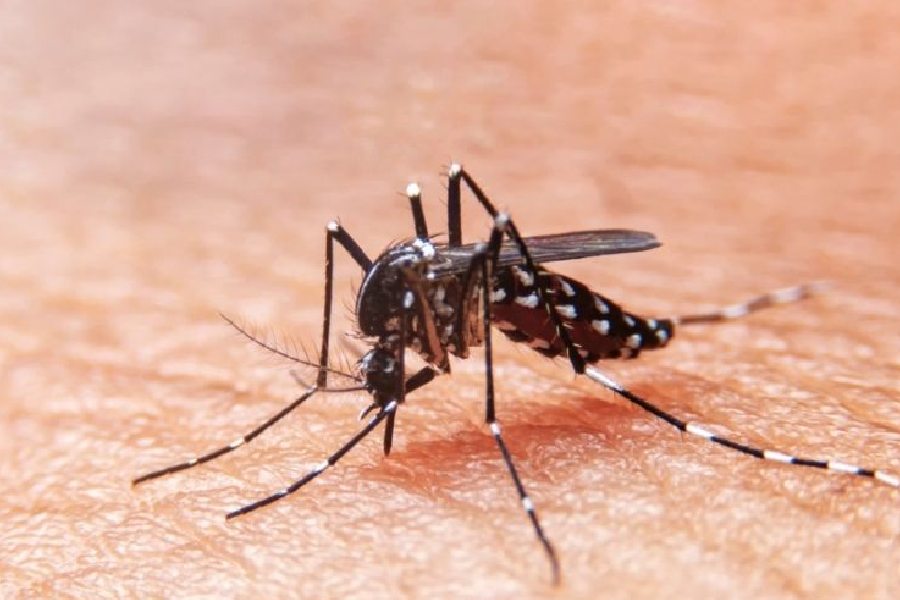Dengue cases have been steadily rising in Salt Lake, Baguiati Kestopur and parts of Rajarhat, among other places.
Last week alone, more than 30 fresh dengue cases were recorded from these places by testing centres run by the Bidhannagar Municipal Corporation (BMC), said an official of the civic body.
These numbers don’t take into account the number of positive cases recorded by private healthcare facilities, the official said.
In Duttabad, on the fringes of Salt Lake alongside EM Bypass, more than six persons have tested positive for dengue in the past week, an official in the BMC’s health department said.
In Salt Lake, fresh cases are being reported regularly from the AE, SA, EE, ED and DL blocks, among others.
Another official in the civic health department said that from January, the number of dengue cases recorded in areas under the Bidhannagar Municipal Corporation stands at 80.
Piles of garbage and pools of water were spotted in multiple places in Salt Lake, including EC Block opposite City Centre, near the main gate of Tank number 9 and SA Block, among others.
Mosquitoes were spotted buzzing around the banks of the Eastern Drainage Canal that cuts across Salt Lake. Multiple residential blocks, including DL and BL, are located along the canal.
Dengue virus is transmitted by the Aedes mosquito, which breeds in stagnant freshwater. It takes around a week for an Aedes egg to become an adult mosquito. So public health experts
urge people to drain out stagnant water at least once a week.
In Salt Lake, dengue cases usually start spiking in July and the trend continues till October-end, an official in the civic body’s health department said.
Last year, 4,200 cases had been recorded in Rajarhat, Kestopur, Salt Lake and Chinar Park, among others. Cluster infections had been reported from many Salt Lake blocks and wards, including 29, 31, 33 and 34.
Banibrata Banerjee, mayoral council member in charge of health, said the civic body has launched a drive to remove all accumulated garbage and cut weeds and bushes.
Besides, rapid response teams made of workers from various civic departments such as health, solid waste management and vector control, are moving around the township and spraying larvicide.
“The teams are also conducting door-to-door visits to find out whether freshwater is accumulating on the premises. We are alerting residents if mosquito larvae are found in flower vases and empty
flower pots and discarded tyres in their homes,” said Banerjee.
Public health experts have repeatedly cautioned against accumulation of freshwater to prevent breeding of mosquitoes.
